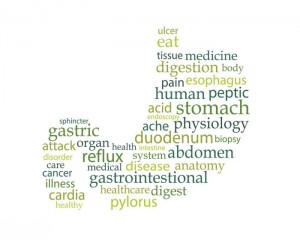-
Minnesota
Clostridium Difficile: A Super Serious Bug
ROCHESTER, Minn. — Clostridium difficile (klos-TRID-e-uhm dif-uh-SEEL) is a bug that can be difficult to beat. The April issue of Mayo Clinic Health Letter covers how this bug is spread, symptoms of the infection and treatment.

This bacteria, also called C. difficile or C. diff, can be found throughout the environment. It is most common in hospitals and other health care facilities where people are especially vulnerable to infection. In recent years, C. difficile infections have become more frequent, severe and difficult to treat. Symptoms range from diarrhea to life-threatening inflammation of the colon.
C. difficile is passed in feces. Without effective cleaning, its hardy spores can persist on surfaces for months. Touching contaminated objects, such as cart handles, bed rails, toilets, telephones and remote controls, may allow the organism to spread.
But simply coming into contact with the bacteria doesn't always cause illness. Ironically, taking antibiotics can trigger a C. difficile infection. Antibiotics destroy some of the protective bacteria in the gut, allowing the C. difficile to grow out of control.
The most common symptoms of an infection are mild abdominal cramping and watery diarrhea for two days or longer. Symptoms for more severe cases include new fever, severe pain and cramping, blood in the stool, and frequent watery bowel movements. Severe symptoms warrant emergency care. C. difficile can cause significant inflammation and potentially deadly complications such as severe dehydration, shock or rupture of the colon.
For mild illness, a physician will likely recommend stopping antibiotics that may have triggered the infection. Many patients require additional treatment. Antibiotics that can stop C. difficile from growing include metronidazole (Flagyl), oral vancomycin (Vancocin) or fidaxomicin (Dificid). In addition, intravenous fluids and nutrition will help avoid dehydration. In severe cases, surgery to remove the colon may be needed.
Good hand hygiene can help prevent C. difficile infections. Vigorous hand washing with soap for 30 seconds is recommended. The friction of rubbing removes the spores. Alcohol-based hand sanitizers don't effectively destroy them.
Mayo Clinic Health Letter is an eight-page monthly newsletter of reliable, accurate and practical information on today's health and medical news. To subscribe, please call 800-333-9037 (toll-free), extension 9771, or visit Mayo Clinic Health Letter Online.
Media Contact: Ginger Plumbo, 507-284-5005 (days), newsbureau@mayo.edu







